Making poverty personal
People
‘Appreciate what you have and see what you can do to make the world a better place’ was the key message to Year 6 Catholic school students who attended ‘understanding poverty workshops’ earlier this month.
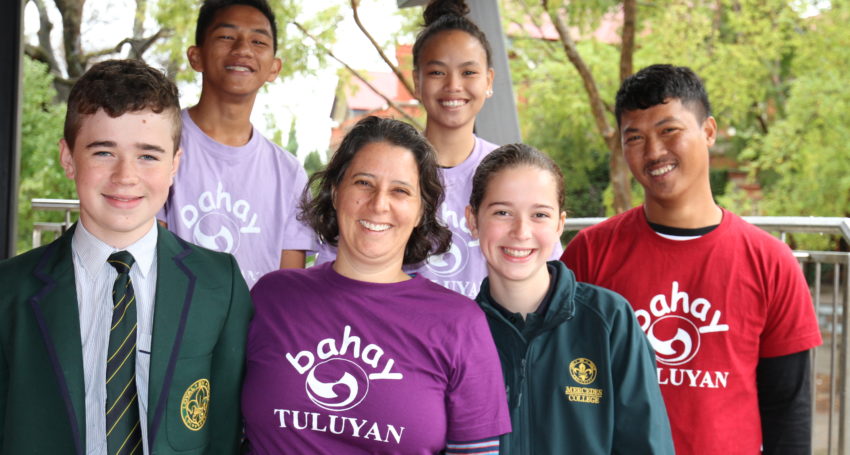
Representatives from the child rights agency Bahay Tuluyan, which supports youth in the Philippines, visited Mercedes and St Mary’s colleges to bring “poverty to the personal” for those attending.
As deputy director, Catherine Scerri, told The Southern Cross, one of the most common reactions from participants was being “blown away by how lucky they are”.
“One of the kids yesterday said to me ‘my mum and I always thought we lived in a small house, but all of a sudden I appreciate it now and realise how lucky we are’.”
Advertisement
Bahay Tuluyan is a non-government, non-denominational organisation that provides a variety of programs and services aimed at preventing and responding to the abuse and exploitation of children in the Philippines. With the most recent figures available nearly 20 years old, the number of ‘street kids’ in the Philippines is unknown but Catherine said conservatively there were hundreds of thousands of children literally living on the footpaths and in the depths of poverty.
She said the workshops were compelling for Australian students as they included presentations from youths who had been supported by the organisation and turned their lives around.
“One of the main motivations for doing this is the connection the students develop with these guys, it’s very powerful.”
Accompanying her on the five-week tour to Australia was Donita Ruiz and Justin Lacambra, who shared their inspiring stories of overcoming the challenges of living in poverty to become leaders in their community, as well as Donato Dimailig, who now works for the organisation and teaches younger people farming skills.
Donita, 18, spoke excitedly about starting her Year 12 studies in Manila this year and her plans to study law in the future. Born on the sidewalk, Donita and her family lived on the streets until she was 12 years old. She recalled how her mother used to scavenge through rubbish bins every day, but there was “never enough food to eat”.
“But I still went to school and I feel safe at school,” she said.
In contrast, Justin’s life was “quite happy” when he was younger, but when his mother was arrested and sent to prison it was the trigger point for the family “falling apart”. He ended up on the streets and having to fight to survive.
“He had to fight to find food to eat and was getting into crime and drugs because of that,” Catherine explained.
She said through the workshops students were asked to think about the distribution of the world’s resources and issues of power and inequality.
“We also want them to think of ways they can help. We ask them throughout the day to think about ‘what is my role in making the world a fairer place, what can I do’? Choosing something they care about, learning about it and then doing something about it.”
Advertisement
Originally from Melbourne, Catherine first visited Bahay Tuluyan during an immersion trip with her school, St Columba’s College in Essendon.
“It just captured my imagination and I felt even then the model of empowerment. It wasn’t a place where you went to feel sorry for kids, it was very positive, amazing.”
She went back to volunteer a couple of times and after completing her law degree she joined the organisation in 2003.
For the past 15 years she has been returning to Australia to conduct workshops interstate as a way of increasing awareness about children living in poverty. This year she was invited to visit Adelaide, mainly at the instigation of St Mary’s old scholar Alisa Willis, whose children Tom and Poppy attend Mercedes College. Alisa’s family lived in the Philippines for five years and saw the “amazing work” being done at Bahay Tuluyan and she believed it fitted well with Catholic social teachings.
Predominantly funded by donations, for the past decade Bahay Tuluyan has also relied more heavily on its social enterprise activities. It runs a guest house in Manila and also operates farms which give young people an opportunity to learn and earn an income for themselves, while also supplying chicken, pork rice, fruit and vegetables to be distributed to street kids.
“It’s absolutely amazing to see some of them carving a life for themselves and see such a positive energy. Most years we have 50-60 youth facilitators involved in running programs – they go out to the streets and are teaching the kids. These guys come from such difficult circumstances but they are giving back. It’s not just about coming and taking and leaving.
“We’re only small but we would like to see generational change and make enough impact on a child’s life that their kids are not going to end up on the streets, they will be able to go to school, they won’t be abused.
“We’ve been around for just over 30 years and over that time we stay in contact with many of the pioneers and they are now taking their kids to school so you see that shift. Small steps.”
For more information about Bahay Tuluyan go to: www.bahaytuluyan.org



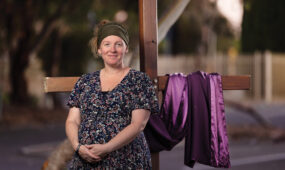
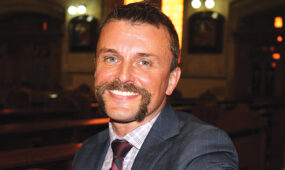
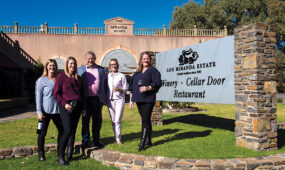
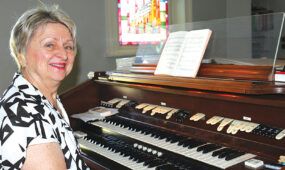

Comments
Show comments Hide comments